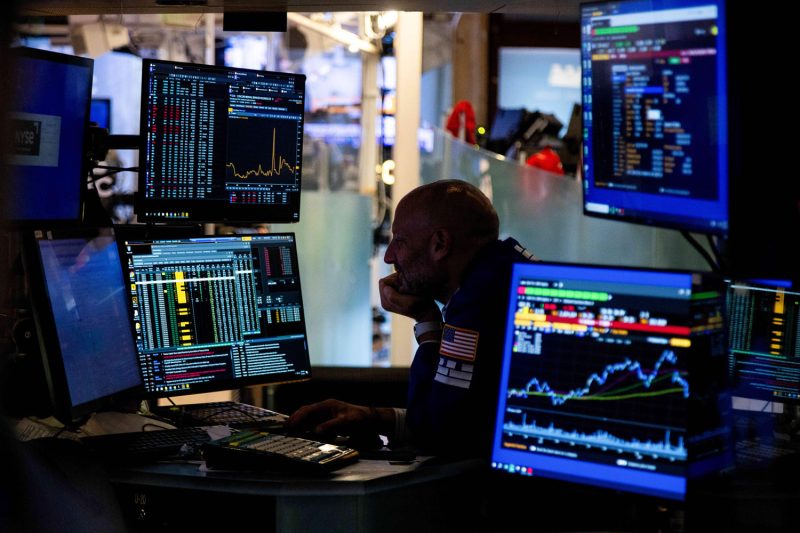The recent 500-point drop in the Dow Jones Industrial Average on Thursday sent shockwaves through financial markets, prompting investors to confront their fears of an impending recession. This significant decline was fueled by a confluence of factors that rattled investor confidence and raised concerns about the future state of the economy.
One of the primary drivers behind Thursday’s market plunge was the inversion of the yield curve, a reliable historical indicator of an impending recession. The yield curve inversion occurs when the interest rates on short-term bonds exceed those on long-term bonds. This inversion is often seen as a harbinger of economic downturn, as it implies that investors have more confidence in the short-term outlook than in the long-term prospects of the economy.
Adding to the unease among investors was the escalating trade tensions between the United States and China. The ongoing trade war has created uncertainty in global markets and has the potential to disrupt economic growth on a global scale. The latest round of tit-for-tat tariff threats from both countries has raised concerns about the impact on businesses, consumer sentiment, and overall economic stability.
Furthermore, the recent turmoil in the global bond market has also contributed to the anxiety among investors. Bond yields have been plunging worldwide, with many key indicators pointing towards a more challenging economic environment. The bond market movements are reflective of growing concerns about a potential economic slowdown and have spooked investors who are now reassessing their risk exposure.
Amidst these economic uncertainties, investors have been flocking to safe-haven assets such as gold and government bonds, seeking refuge from the volatility in the equity markets. This flight to safety has further exacerbated the sell-off in equities, as investors look to mitigate potential losses and preserve their capital in more stable assets.
While the recent market downturn and recession fears have undoubtedly jolted investors, it is essential to remember that market fluctuations are a natural part of the economic cycle. It is crucial for investors to maintain a long-term perspective, diversify their portfolios, and stay informed about market trends to make sound investment decisions amidst the current economic uncertainties.
In conclusion, the recent 500-point drop in the Dow Jones Industrial Average and the awakening of recession fears among investors are symptomatic of a complex web of economic factors at play. The inversion of the yield curve, escalating trade tensions, and turmoil in the bond market have all contributed to the unease in financial markets. As investors navigate these uncertain times, it is imperative to stay vigilant, informed, and prepared to weather the storm in pursuit of long-term financial objectives.

